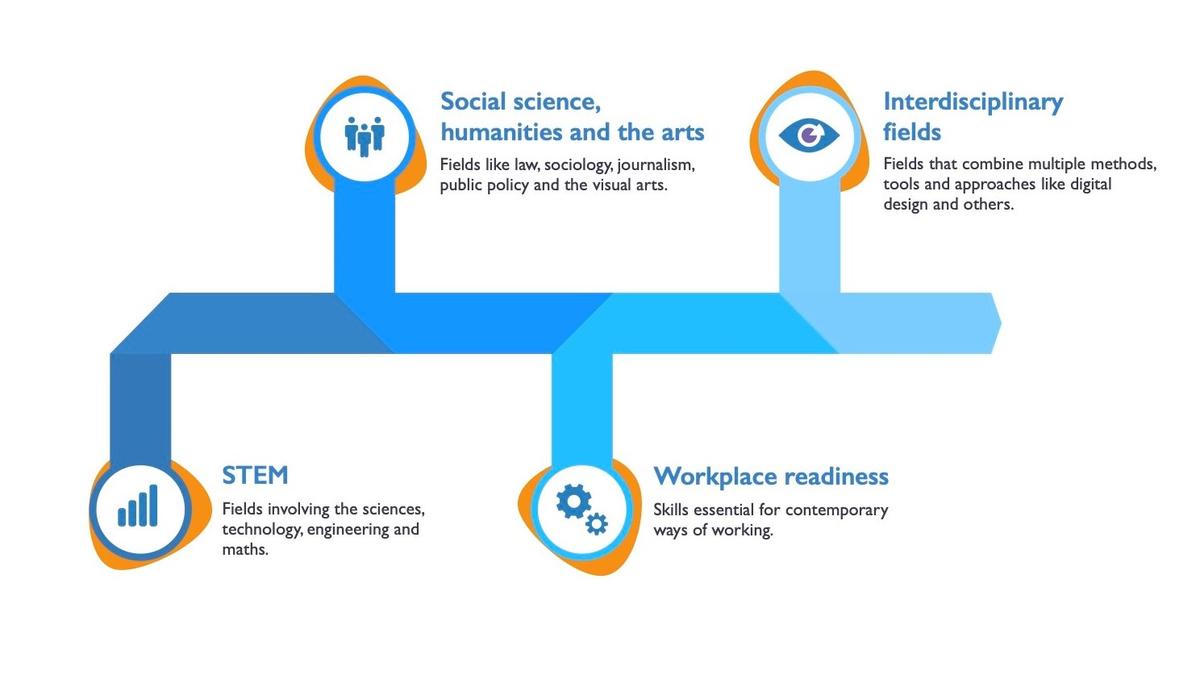IBDP Digital Society

Group 3 | Digital Society
| 🎓 Level | HL & SL |
|---|---|
| ⏱ Hours | 150 (SL) or 240 (HL) |
| 📚 Prerequisite | None |
| ℹ️ IB Course Information | Link (SL/HL) |
Important Note:
At standard level, this course can be anticipated (completed in the first year of your IB Diploma)
What will I learn?
“We are (in) a digital society. Digital systems are changing our world and transforming how we think, communicate, collaborate and create.” (Digital Society course booklet)
This course will provide you with concepts and understanding that are directly relevant to the society in which you live now and prepare you to navigate a future in which the digital society will be even more prevalent.
The way you interact with the digital world will continue to evolve. As these interactions become more sophisticated – for example, through virtual reality, virtual worlds and Web 3.0 – you need to be equipped to understand, synthesise and act with integrity and clarity, even if the technology does not exist today. Developing critical thinking skills in the context of the digital world will help you think clearly about your place in the world and how to interact with it purposefully. You will be able to assess the consequences of your actions (or inactions) and the impact (both implicit and explicit) that significant entities in the digital world place on society.
Digital society will help develop an understanding of core digital concepts so that you can engage with and understand technology instead of just being users. Through inquiry-based learning of current and future trends in technology, you will learn how to become a discerning citizen of a digital society: how to approach new technologies with an open mind, ready to appreciate the benefits but also able to analyse limitations or problems that may arise. For example, exploring the rise of generative AI (e.g. Chat-GPT) will allow you to understand how to use such technologies ethically now and, thus, how to approach developing technologies (such as cognitive AI) in the future.
Regardless of your technological background, you already live in a digital society. This subject will help you thrive in it.
Course Structure
Students undertake a series of guided and open inquiry-based projects, as well as workshops that unpack key concepts and approaches. Broadly, the following topics are covered:
- Introduction to digital society
- Concepts - themes and perspectives of digital society
- Content - knowledge of digital systems
- Contexts - exploring issues and areas of significance
In addition to the above, at HL standard, students conduct an extended inquiry to address a challenge topic and intervention in digital society, using one of the following focuses:
- Global well-being
- Governance and human rights
- Sustainable development
Why should I consider this course?
Digital society enables students to think critically about the digital world in which they live. If you want to move from being an unthinking user of technology to being someone who uses technology purposefully, if you want to respond thoughtfully to the issues that arise in the digital world instead of simply reacting to and being influenced by this world, this course will help extend your capacity to do so.
Assessment
| Component | Requirement | %HL | %SL |
|---|---|---|---|
Internal Assessment: Inquiry Project | Inquiry process document (1500 words) Multimedia presentation (10 minutes) | 20 | 30 |
| Paper 1: | 2.25 hours (HL) / 1.5 hours (SL) | 35 | 40 |
| Paper 2: | 1.25 hours | 20 | 30 |
| Paper 3: (HL only) | 1.25 hours | 25 |
|
What Skills does this course provide?
Along with developing an understanding of how digital systems work, this course has been developed to provide students with skills in critical thinking and inquiry skills. Internationally-minded digital society students think, act and communicate from a position of purposeful responsibility, both locally and globally.
What Pathway Options does this course provide?
Although it is possible to pursue a career in digital society in its own right, the skills, knowledge and mindset developed in digital society are relevant across any number of disciplines.
The following diagram demonstrates just some of the pathways that would be enhanced by studying digital society:

